If you’ve ever dreamed of soaring through the skies and commanding a cockpit, then exploring a career as a pilot in the USA might be the perfect option for you. Becoming a pilot offers an exhilarating and fulfilling career path, with numerous opportunities for growth and adventure. From navigating the friendly skies to experiencing diverse cultures and destinations, the world is your playground as a pilot. In this article, we will provide you with a career overview of being a pilot in the USA, giving you a glimpse into the exciting and rewarding journey that awaits you.
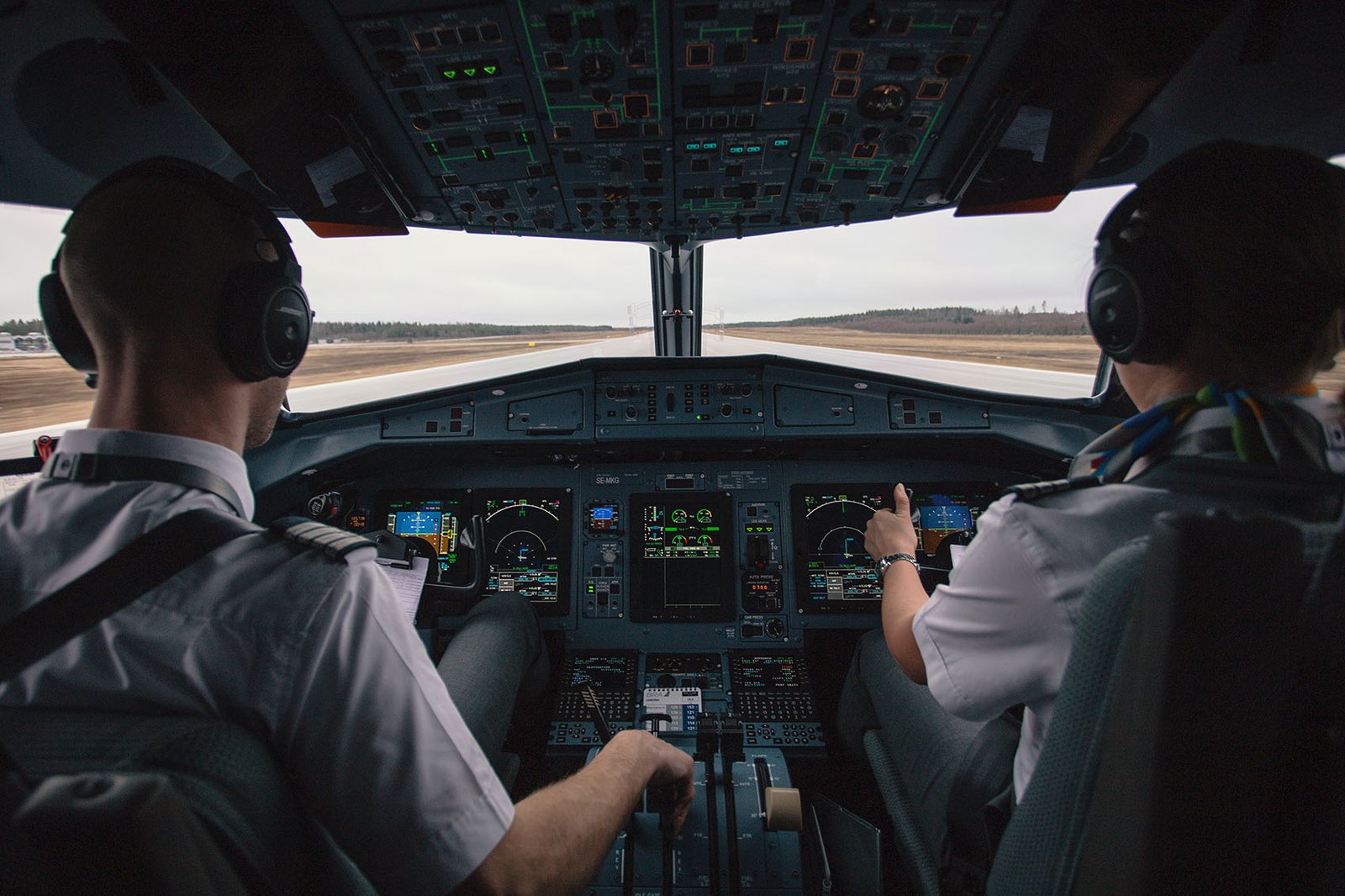
This image is property of images.ctfassets.net.
Career Overview of Pilot
Becoming a pilot is an exciting and challenging career choice that offers a wide range of opportunities for those who are passionate about aviation. As a pilot, you will have the privilege of operating aircraft, transporting passengers or cargo, and experiencing the thrill of flight. This comprehensive career overview will explore the requirements, responsibilities, working conditions, advantages, and challenges associated with being a pilot.
Education and Training
Required Education
To pursue a career as a pilot, a high school diploma or equivalent is typically required. However, most airline pilots and commercial pilots possess at least a bachelor’s degree. While the degree can be in any field, it is beneficial to study subjects related to aviation, such as aerospace engineering, aviation management, or aviation science.
Skills and Qualifications
Along with education, certain skills and qualifications are highly desirable in the field of aviation. These include strong communication skills, problem-solving abilities, attention to detail, the ability to work well under pressure, and excellent hand-eye coordination. Additionally, pilots must possess physical fitness to meet the medical requirements set by regulatory bodies.
Flight Training
Flight training is a crucial aspect of becoming a pilot. It involves both ground school and flight instruction, equipping aspiring pilots with the knowledge, skills, and experience necessary to safely operate an aircraft. Flight training covers a wide range of topics, including aerodynamics, meteorology, navigation, aircraft systems, and emergency procedures.
Certification and Licensing
To become a pilot, you must obtain the appropriate certifications and licenses. The Federal Aviation Administration (FAA) in the United States oversees the certification process. For example, pilots must obtain a Private Pilot License (PPL), which allows them to fly for recreational purposes. To pursue a career as a pilot, further certifications and licenses are required, such as an Instrument Rating and a Commercial Pilot License (CPL). Lastly, aspiring airline pilots must pass the Airline Transport Pilot (ATP) exam to qualify for employment with major airlines.
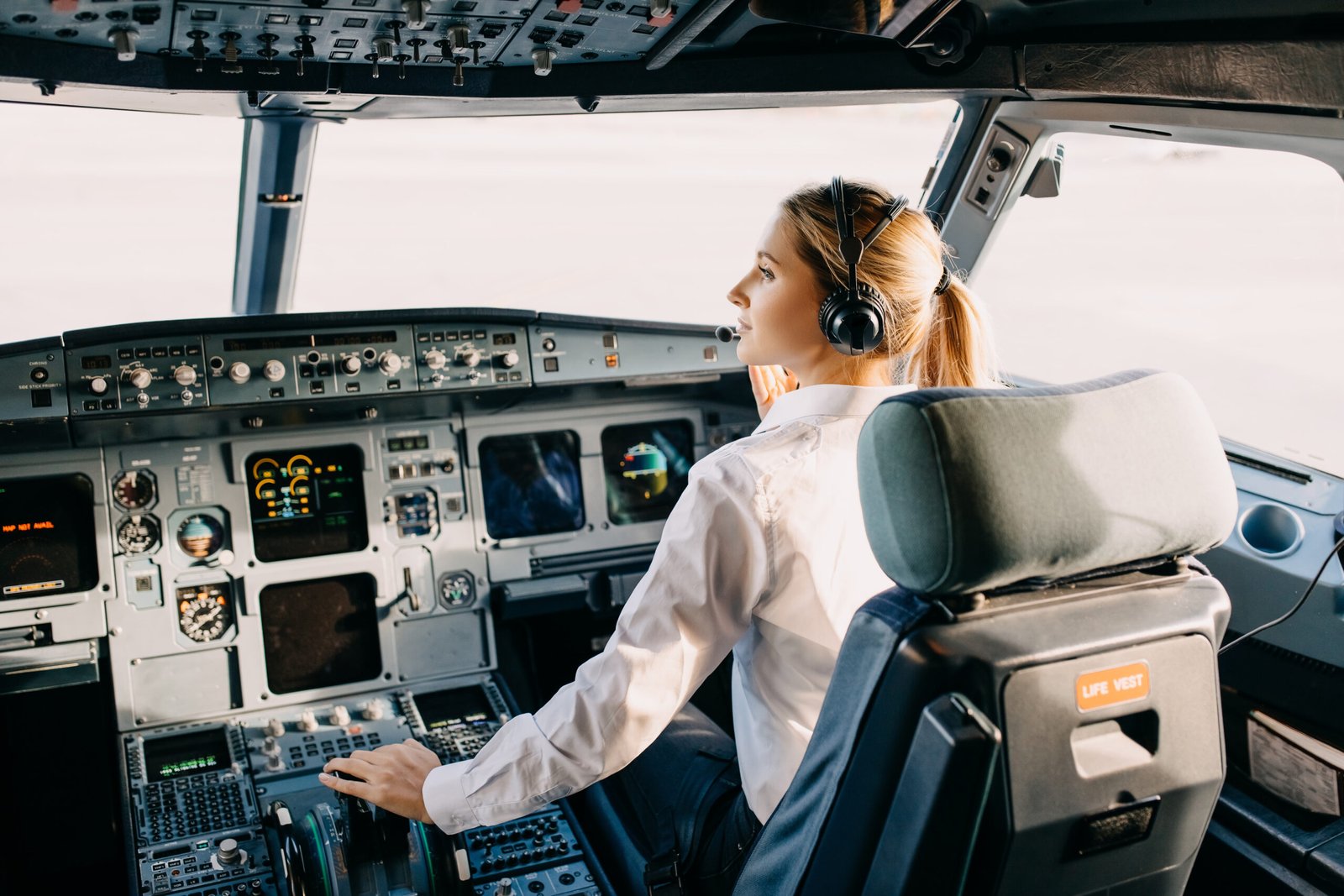
This image is property of tae.aero.
Types of Pilot Careers
The field of aviation offers a diverse range of pilot careers depending on one’s interests and aspirations. Here are some of the primary types of pilot careers:
Airline Pilot
Airline pilots are responsible for operating large commercial aircraft, transporting passengers safely to their destinations. They work for major airlines and adhere to strict schedules and regulations. Airline pilots are highly skilled professionals who often fly long-haul flights domestically and internationally.
Commercial Pilot
Commercial pilots operate aircraft for various purposes, such as transporting cargo, conducting aerial tours, or flying privately chartered flights. They may work for small airlines, charter companies, or corporations. Commercial pilots have more flexibility in terms of schedules and destinations compared to airline pilots.
Military Pilot
Military pilots serve in the armed forces and fly military aircraft. They may engage in combat missions, provide air support, or engage in surveillance and reconnaissance. Military pilots undergo rigorous training and are often required to commit to a certain period of service.
Agricultural Pilot
Agricultural pilots, also known as crop dusters, play a crucial role in the agriculture industry. They are responsible for flying low-altitude missions to spray crops with fertilizers, pesticides, or herbicides. Agricultural pilots must have excellent flying skills and the ability to work accurately in challenging conditions.
Charter Pilot
Charter pilots operate private aircraft for individuals or organizations. They provide personalized and on-demand travel experiences, allowing clients to travel at their convenience. Charter pilots often fly smaller aircraft and may have the opportunity to visit a variety of destinations.
Corporate Pilot
Corporate pilots work for corporations or high-profile individuals, operating private jets to fulfill their aviation needs. Corporate pilots often have demanding schedules and may be required to travel frequently to accommodate the needs of their employers.
Helicopter Pilot
Helicopter pilots specialize in flying helicopters, offering a unique perspective on aviation. They may work in various sectors, including emergency medical services, law enforcement, tourism, or aerial photography. Helicopter pilots undergo specialized training to handle the unique characteristics of helicopter flight.
Employment Outlook
When considering a career as a pilot, it is important to understand the employment outlook and industry trends. Here are some key factors to consider:
Job Market
The job market for pilots varies depending on the type of pilot career. While the demand for airline pilots remains strong, other sectors may experience fluctuations. Factors such as economic conditions, airline expansions or contractions, and technological advancements can influence the job market for pilots.
Salary Potential
Pilot salaries can vary greatly depending on the type of pilot career and level of experience. Airline pilots typically earn higher salaries compared to commercial or charter pilots. Additionally, factors such as the size of the aircraft, the number of flight hours, and the employer can impact salary potential.
Industry Growth
The aviation industry is expected to experience steady growth in the coming years. As air travel continues to expand globally, the demand for qualified pilots is projected to increase. However, it is important to stay updated with industry trends and technological advancements to remain competitive in this dynamic field.
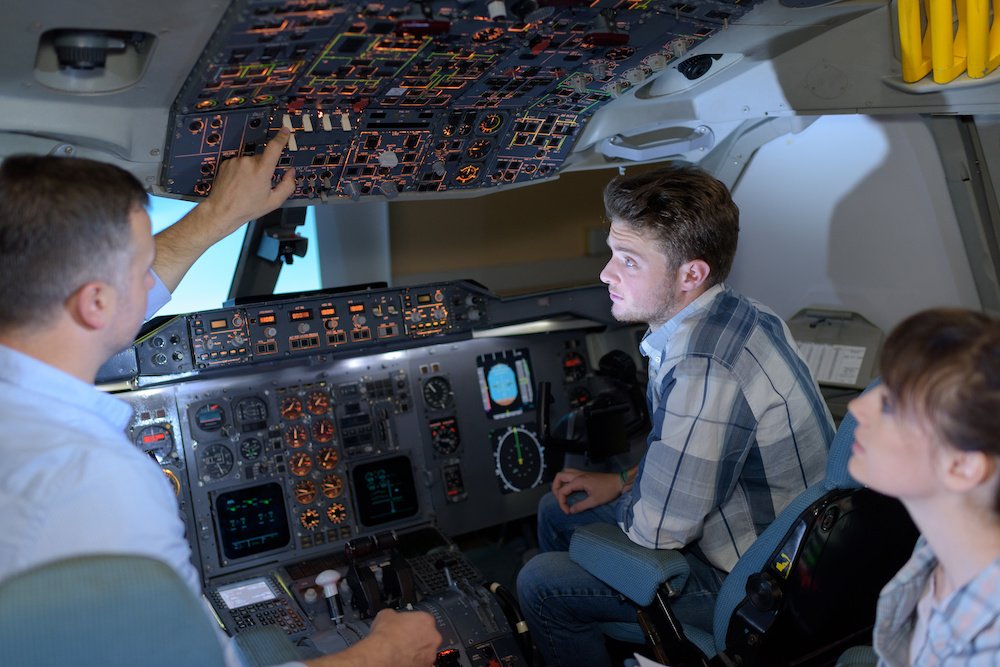
This image is property of www.piper.com.
Job Responsibilities and Duties
Pilots have a wide range of responsibilities and duties, which ensure the safety and efficiency of flights. Here are some of the main areas of focus for pilots:
Flight Planning
Before each flight, pilots are responsible for planning the route, considering weather conditions, airspace restrictions, and other factors that may impact the flight. They review navigational charts, weather reports, and flight briefings to ensure a safe and efficient flight plan.
Pre-flight Checks
Performing pre-flight checks is a critical part of a pilot’s responsibilities. Pilots must inspect the aircraft thoroughly, checking for any signs of mechanical issues or abnormalities. They review the aircraft’s systems and instruments, ensuring everything is in proper working order.
Operating Aircraft
Once in the cockpit, pilots are responsible for operating the aircraft safely and efficiently. They must monitor instruments, communicate with air traffic control, and make adjustments as necessary. Pilots must adhere to all safety protocols, flight regulations, and company procedures.
Communication
Effective communication is essential for pilots. They must communicate with air traffic control to receive instructions, navigate through airspace, and ensure the safety of their flights. Pilots also communicate with passengers, providing necessary updates and ensuring a comfortable flying experience.
Emergency Procedures
Pilots must be prepared to handle emergency situations. They undergo extensive training to respond to various emergencies, such as engine failures, severe weather conditions, or medical incidents onboard. Pilots must remain calm and make critical decisions to ensure the safety of their crew and passengers.
Post-flight Duties
After landing, pilots are responsible for completing various post-flight duties. They must complete flight reports, document any mechanical issues, and ensure that the aircraft is secured properly. Pilots may also debrief with their crew or attend post-flight meetings.
Working Conditions
The working conditions for pilots can vary depending on the type of pilot career and the employer. Here are some aspects to consider:
Work Environment
Pilots work in a variety of environments, including airports, aircraft hangars, and cockpits. For airline pilots, the work environment may involve extended periods away from home, overnight layovers, and irregular schedules. However, for commercial or charter pilots, there may be more flexibility and opportunities for home base operations.
Work Schedule
Pilot schedules can vary greatly depending on the type of pilot career. Airline pilots often work irregular hours, including evenings, weekends, and holidays. They may also have long-haul flights that require them to be away from home for extended periods. Commercial or charter pilots typically have more predictable schedules and may fly shorter distances.
Physical Demands
Being a pilot can be physically demanding. Pilots must have excellent physical health to meet the medical requirements set by regulatory bodies. They may also face challenges such as fatigue, jet lag, and exposure to altitude changes. Good overall physical fitness is essential to cope with the demands of the job.
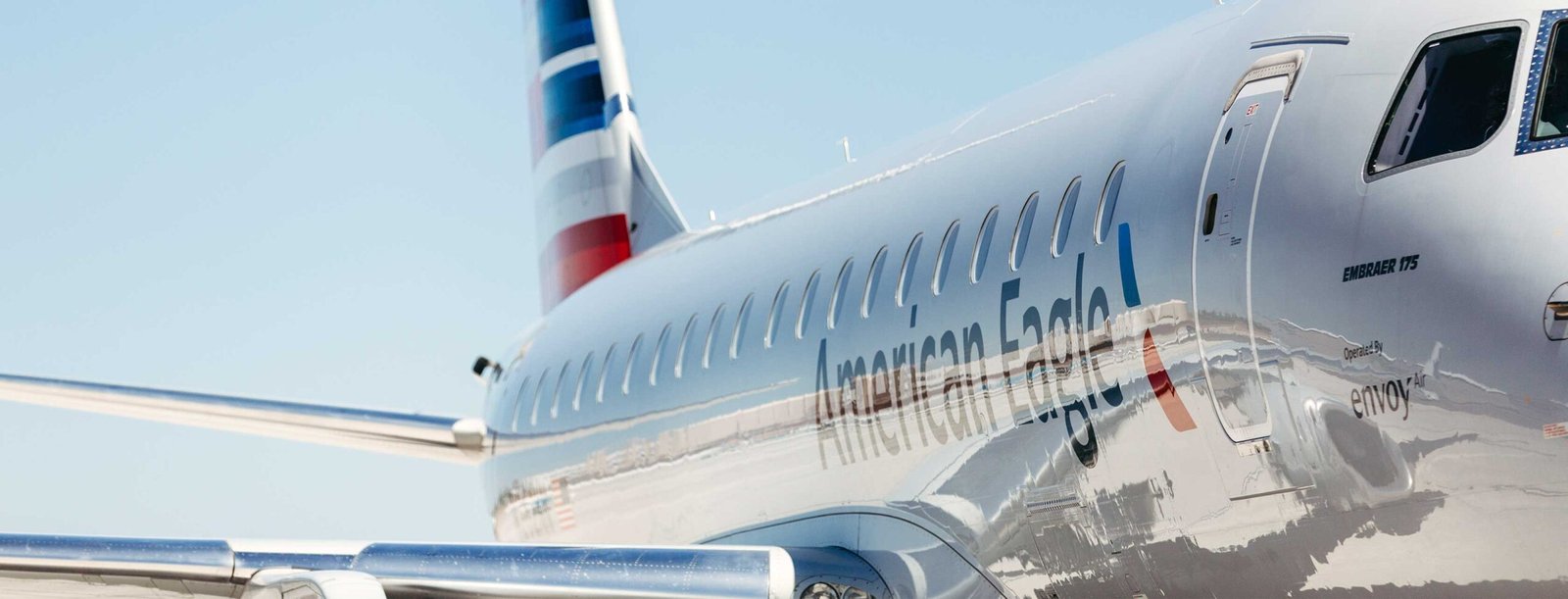
This image is property of atpflightschool.com.
Advantages of a Pilot Career
A career as a pilot offers numerous advantages that make it an appealing choice for many aviation enthusiasts. Here are some advantages associated with a pilot career:
Travel Opportunities
One of the most exciting aspects of being a pilot is the opportunity to travel to various destinations around the world. Whether it’s flying to exotic locations, exploring new cultures, or simply experiencing the thrill of flight, pilots enjoy a unique perspective on travel.
Lucrative Salary
Pilots have the potential to earn a lucrative salary, especially as they gain experience and advance in their careers. Airline pilots, in particular, benefit from competitive salaries, attractive benefits, and the potential for regular salary increases.
Career Progression
The field of aviation offers ample opportunities for career progression. As pilots gain flight hours and experience, they can advance to higher positions, such as First Officer or Captain. Furthermore, pilots may pursue leadership roles within their organizations or transition into other aviation-related careers, such as aviation management or safety.
Job Stability
Pilots enjoy a certain level of job stability, particularly in the airline industry. As long as there is demand for air travel, there will be a need for qualified pilots. This stability provides pilots with a sense of security and can contribute to a rewarding and fulfilling career.
Challenges of a Pilot Career
While a pilot career offers many advantages, it is not without its challenges. Here are some of the challenges that pilots may face:
Stressful Situations
Pilots must be prepared to handle stressful situations, such as adverse weather conditions, mechanical failures, or emergencies. The ability to remain calm under pressure and make critical decisions is essential for pilot safety and the safety of their passengers.
Long Hours
Pilots often work long hours, which can include irregular schedules, overnight layovers, and extended periods away from home. This can lead to fatigue and a disruption in personal life. Maintaining a work-life balance can be particularly challenging for pilots, especially those in the airline industry.
Continuous Learning
Aviation is a rapidly evolving field, and pilots must stay updated with the latest technologies, regulations, and procedures. Pilots are required to undergo recurrent training to maintain their certifications and stay current with industry trends. Continuous learning and professional development are crucial in ensuring safety and competence.
Physical and Mental Demands
Being a pilot requires a high level of physical and mental fitness. Pilots must meet stringent medical requirements and undergo regular medical examinations. The demanding nature of the job, including long flights, time zone changes, and exposure to high altitude, can place physical and mental strains on pilots.
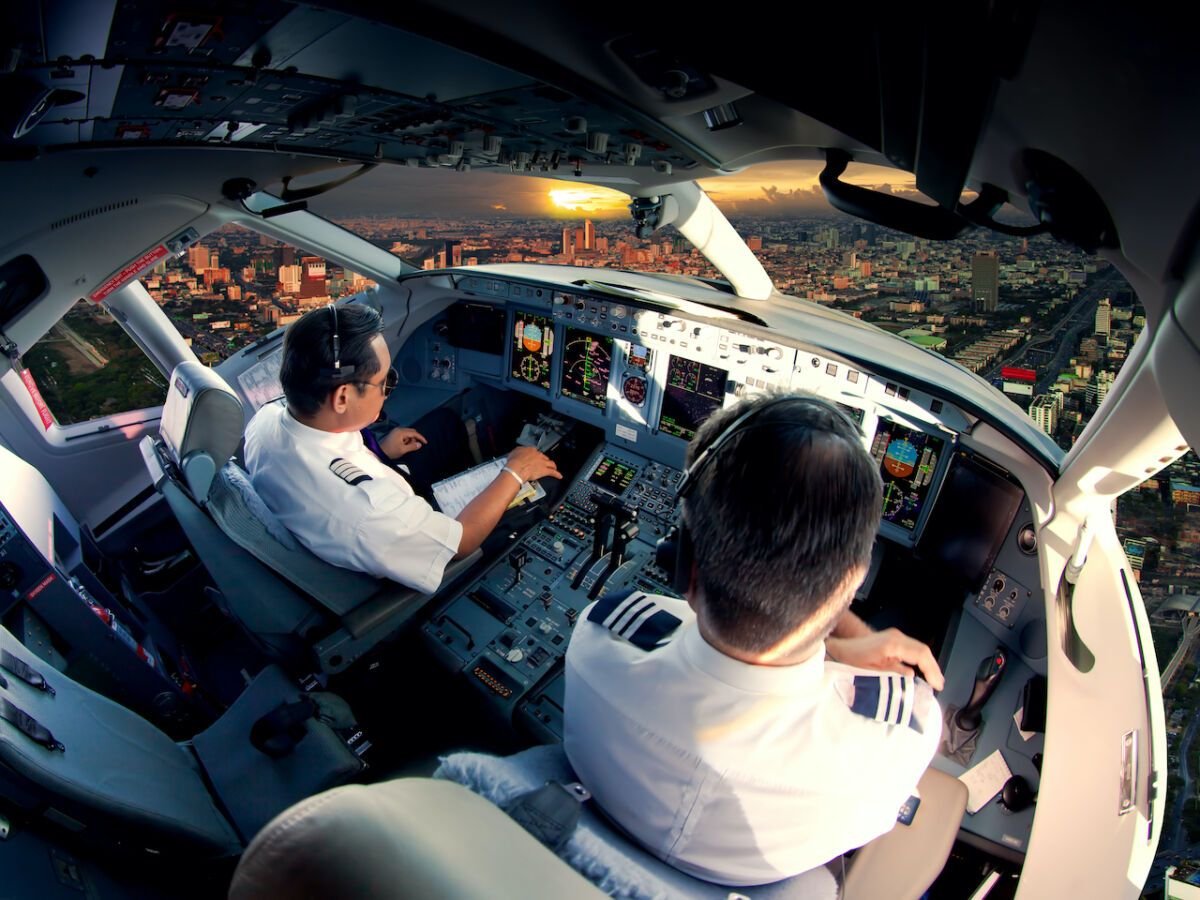
This image is property of cdn1.matadornetwork.com.
Steps to Becoming a Pilot
Becoming a pilot requires dedication, commitment, and a passion for flying. Here are the general steps to pursue a career as a pilot:
Research and Self-assessment
Before embarking on a pilot career, it is important to conduct thorough research and self-assessment. Understand the requirements, responsibilities, and challenges associated with being a pilot. Evaluate your passion for aviation, assess your physical and mental fitness, and ensure that you meet the necessary criteria.
Obtain a Private Pilot License (PPL)
Start your pilot journey by obtaining a Private Pilot License (PPL). This license allows you to fly for recreational purposes and is the first step towards a career as a pilot. PPL training includes both ground school and flight instruction, covering essential knowledge and skills.
Earn an Instrument Rating
An Instrument Rating is an important step towards becoming a professional pilot. It allows you to navigate and operate an aircraft solely by reference to the instruments in the cockpit. This rating enhances your flying skills and opens doors to more advanced certifications.
Obtain a Commercial Pilot License (CPL)
To pursue a career as a pilot, you will need to obtain a Commercial Pilot License (CPL). CPL training focuses on advanced flight maneuvers, navigation, and emergency procedures. It also includes additional ground school training to expand your knowledge base.
Build Flight Experience
Flight experience is crucial in the pilot world. Build flight hours by taking advantage of various opportunities, such as flight instruction, aerial surveying, aerial photography, or flight instruction. The more flight hours you accumulate, the more attractive you become to potential employers.
Pass the Airline Transport Pilot (ATP) Exam
To fly for a major airline, you will need to pass the Airline Transport Pilot (ATP) exam. This exam evaluates your knowledge, skills, and decision-making abilities at the highest level. Successfully passing the ATP exam opens doors to career opportunities with major airlines.
Job Search and Application Process
Once you have obtained the necessary qualifications and experience, it’s time to embark on your job search as a pilot. Here are some steps to help you in the process:
Finding Employment Opportunities
Utilize various resources to find employment opportunities as a pilot. Job boards, aviation industry websites, networking events, and professional organizations can provide valuable leads. Stay updated with industry news and trends to be aware of emerging opportunities.
Preparing a Resume and Cover Letter
Craft a professional and targeted resume and cover letter that highlight your qualifications and achievements. Tailor your documents to the specific position you are applying for and showcase your passion for aviation, your flight experience, and your commitment to safety.
Interviewing for Pilot Jobs
Prepare thoroughly for pilot interviews. Research the company you are interviewing with and familiarize yourself with their operations. Be ready to discuss your flight experience, problem-solving skills, and your ability to work in a team. Demonstrate your confidence, professionalism, and commitment to safety throughout the interview process.
In conclusion, a career as a pilot offers an exciting and fulfilling journey in the world of aviation. From the required education and training to the various pilot careers available, there are numerous paths to explore. While the job responsibilities and working conditions may present challenges, the advantages, such as travel opportunities and a lucrative salary, make it an enticing career choice for aviation enthusiasts. By following the necessary steps to become a pilot and effectively navigating the job search and application process, you can embark on a rewarding career that allows you to soar through the skies.